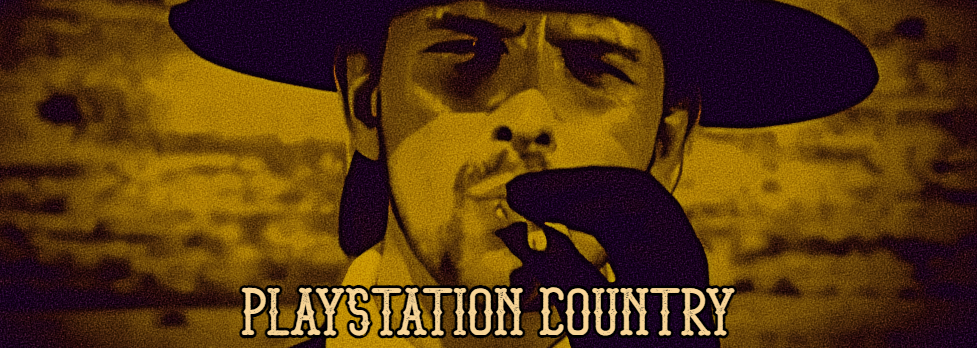Digital Eclipse have always had interesting approaches to collections. Certainly keen on preserving the past, they’ve been good at providing documentary footage to give players a peek behind the curtain. Last year’s Atari 50 : The Anniversary Collection seems to have provided a good blueprint and now, The Making of Karateka looks to handle something with more focus. The end result is something fascinating.
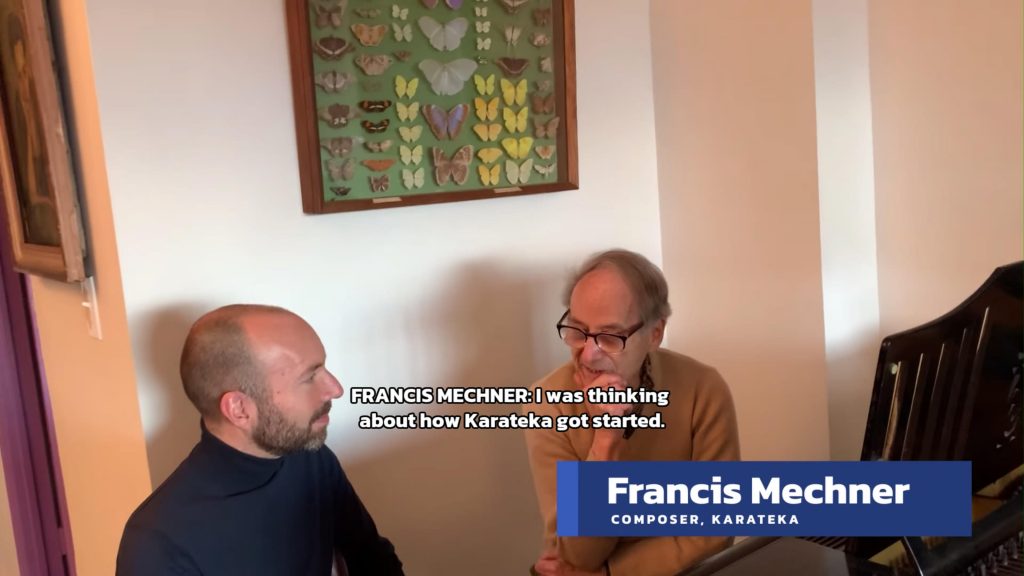 Before Jordan Mechner became known for the Prince of Persia, the college graduate was struggling to find a hit. The Making of Karateka does a wonderful job of charting those early failures before finally beginning a successful relationship with Broderbund Software. These fledgling attempts are playable and it’s interesting to see just where Jordan got his start.
Before Jordan Mechner became known for the Prince of Persia, the college graduate was struggling to find a hit. The Making of Karateka does a wonderful job of charting those early failures before finally beginning a successful relationship with Broderbund Software. These fledgling attempts are playable and it’s interesting to see just where Jordan got his start.
The documentary is staged in five distinct sections but they all present their assets in chronological order. Collections on this scale live and die by what access they have to source materials and, thankfully there’s a lot to dig into. Contributions come from a good variety of talking heads but the bulk of it is done by Francis and Jordan Mechner. Broderbund themselves are represented by Doug Carlston, Veda Hlubinka-Cook and Lauren Elliott. The Mechners clearly remember the game quite fondly and both have plenty to say. Francis looks genuinely proud throughout and it’s endearing to see.
In terms of articles of interest, I find the correspondence between Mechner and Broderbund most intriguing. It’s direct and offers a fairly candid peek at their collaborations. It’s great to see how a relationship between developer and publisher was handled in the early 80’s. Whilst Karateka‘s development might feel short by contemporary standards, the words exchanged in these letters show a constant flow of feedback that makes developing games appear more of a gradual process.
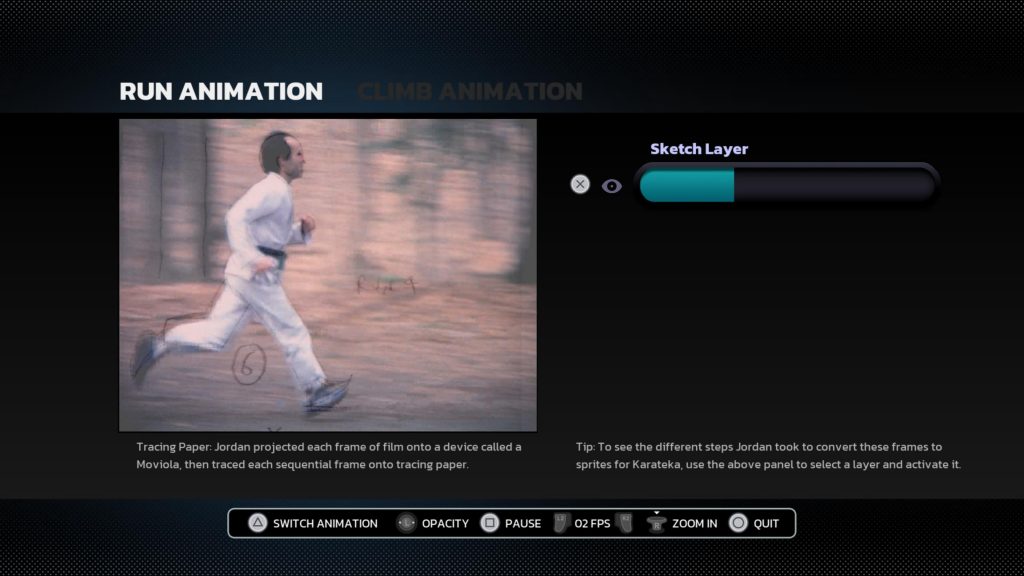 With this comes playable prototypes. It’s wonderful to have these here and it does compliment those letters quite well. Not only do you read the respective changes but can play them. I enjoyed seeing Karateka come together over a few revisions. Later chapters dive into marketing and the game’s many ports. Two of them make the collection with the Commodore 64 and Atari home computer versions accompanying the Apple II originator.
With this comes playable prototypes. It’s wonderful to have these here and it does compliment those letters quite well. Not only do you read the respective changes but can play them. I enjoyed seeing Karateka come together over a few revisions. Later chapters dive into marketing and the game’s many ports. Two of them make the collection with the Commodore 64 and Atari home computer versions accompanying the Apple II originator.
Whilst I caught the tail end of Britain’s micro-computing boom, I had neither played any version of Karateka. The Apple II was populating schools and computer labs in America but it never penetrated over here. It’s interesting to lay eyes on that machine and it’s limitations for the first time. Sound is, largely crippled by the speaker which makes Francis Mechner’s soundtrack more impressive.
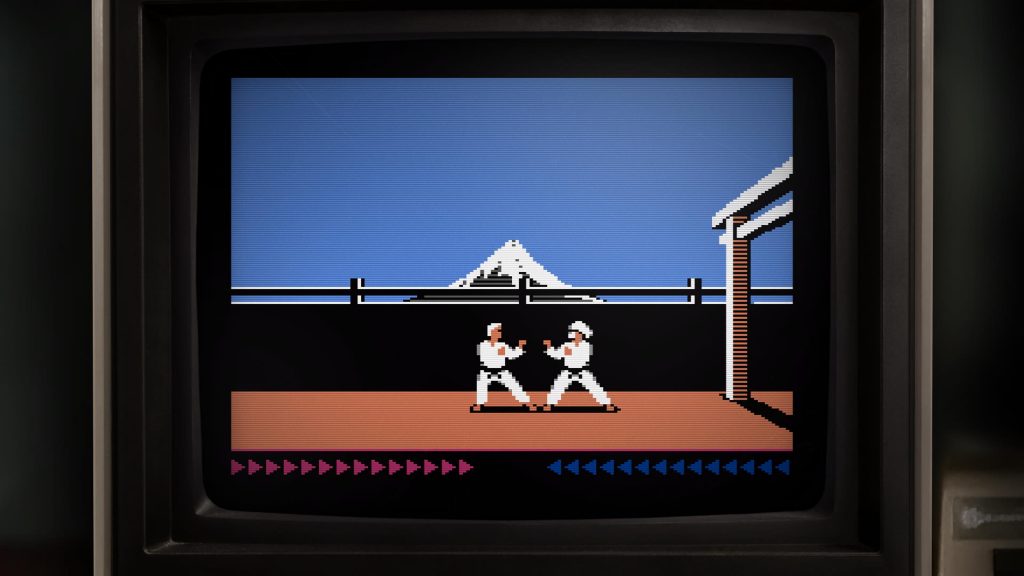 The Commodore 64 version is much more colourful but controls are initially confined by the system’s lack of a two-button joystick. Thankfully, there is a six-button control option for all versions, allowing those made enough to plug in a fight stick. The Atari version takes on a more simplified look but all three versions are fairly comparable. Other ports are merely represented in screenshots but this does prevent being overwhelmed by the differing quality home ports would bring.
The Commodore 64 version is much more colourful but controls are initially confined by the system’s lack of a two-button joystick. Thankfully, there is a six-button control option for all versions, allowing those made enough to plug in a fight stick. The Atari version takes on a more simplified look but all three versions are fairly comparable. Other ports are merely represented in screenshots but this does prevent being overwhelmed by the differing quality home ports would bring.
As a newcomer to the game, I was still surprised by how well it holds up. Whilst speed and fluidity isn’t something I’d expect from 1984 hardware, it’s perfectly playable. The documentary certainly plays up the cinematic tendencies but the flourishes Mechner utilised did a great job of providing something just not seen at the time. Deathbounce and his Asteroid clones all felt firmly arcade-like in execution. Karateka feels novel and fresh, by comparison. It can be tough to go back to older titles true classics find a way to endure.
The final trick up The Making of Karateka’s sleeve is to present two updated games. Karateka Remastered is Digital Eclipse’s reimagining of the original. Not as drastic as 2012’s Karateka, this exercises much more restraint. Animation is smoother and the backgrounds are detailed and animated but this is still recognisably familiar. Modern comforts include in-game goals and lives but there’s also restoration of cut content. It’s really well presented and, whilst I still see the Apple II effort as the definitive version, this runs a close second. In keeping with the rest of the product, commentary from Digital Eclipse’s Mike Mika can be enabled, allowing you to hear the process behind the decisions they made.
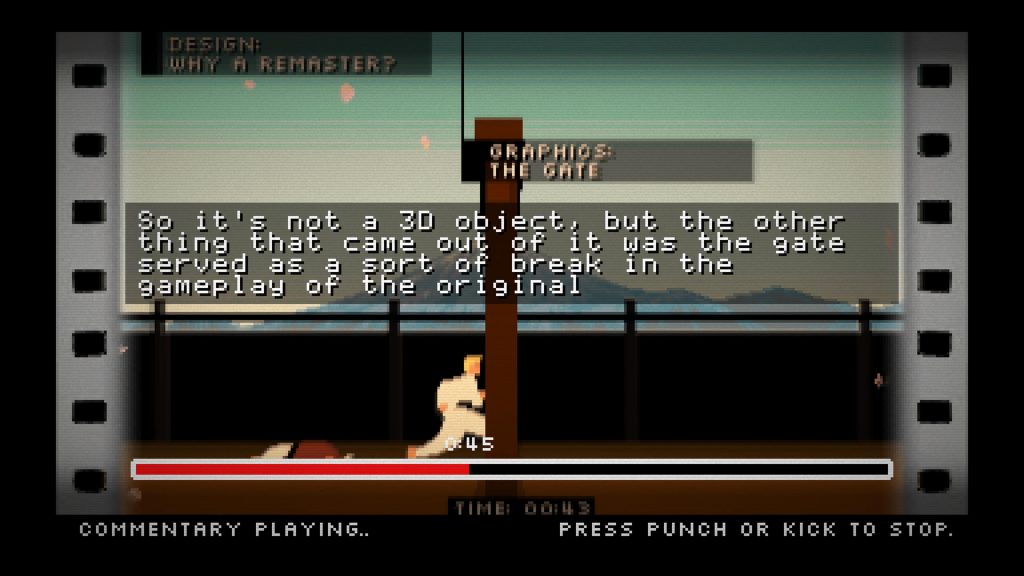 Lastly, there is Deathbounce Remastered. Polished up from the included prototypes, it’s a decent arcade shooter. Certainly an imitator, this spin on Asteroids has boxy construction that sees you blast your way through train cars. Again, there’s restraint here with the thought of bringing an unfinished product over the line. It’s more of a lovely gesture than an undiscovered gem but it’s an important title in Jordan Mechner’s origins as a developer.
Lastly, there is Deathbounce Remastered. Polished up from the included prototypes, it’s a decent arcade shooter. Certainly an imitator, this spin on Asteroids has boxy construction that sees you blast your way through train cars. Again, there’s restraint here with the thought of bringing an unfinished product over the line. It’s more of a lovely gesture than an undiscovered gem but it’s an important title in Jordan Mechner’s origins as a developer.
I had some doubts as to whether a single game could provide enough content for a collection like this. It’s staggering just how many artefacts were collated in this package. It’s carefully curated and presented in a complete narrative that takes the story right up to Prince of Persia‘s early concepts. I was thoroughly absorbed by the interviews and stories behind Jordan Mechner’s early work and it truly is worth seeking out.
+ Features three comparable ports that hold up well.
+ Playable prototypes show how the game altered over time.
+ Karateka Remastered is thoughtfully created and faithful to the original.
- A couple of the games included feel like bonuses rather than essential to the story.
- Some sections of the documentary can feel superfluous.
